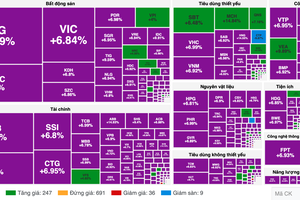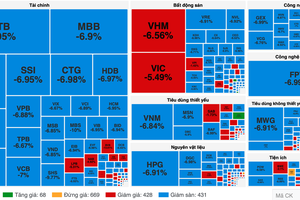
At the policy consultation conference on the development of the E-commerce Law held by the Ministry of Industry and Trade this afternoon, Director Le Hoang Oanh of the Agency of E-commerce and Digital Economy announced that the Ministry has submitted a proposal to include the draft E-commerce Law in the National Assembly’s 2025 legislative program which is expected to be approved in October.
One of the notable policies in the draft is to clearly define the responsibilities of e-commerce service providers, helping to ensure that information on goods and services is always transparent and legal.
This means that consumers will be better protected when shopping online, avoiding risks from transactions of unknown origin. At the same time, e-commerce platforms will have to comply with stricter regulations, helping to build a healthy business environment.
According to Minister of Industry and Trade Nguyen Hong Dien, e-commerce plays a pivotal role in Vietnam’s economy, with the country’s retail market ranking third in Southeast Asia. Valued at US$25 billion, it represents two-thirds of the nation’s US$36 billion digital economy.
Despite rapid development, Vietnam's e-commerce is facing many challenges. Current policies lack strong legality and are not consistent with other laws such as the Tax Law or the Intellectual Property Law. The legal system has not yet been able to adjust to new models such as commerce via social networks and platforms using big data or artificial intelligence. Furthermore, the management mechanism is unclear, leading to difficulties in handling violations and increasing commercial fraud.
Therefore, the Minister of Industry and Trade emphasized that developing and enacting the Law on E-commerce is essential to ensuring effective governance of the sector in today’s evolving digital landscape.
























